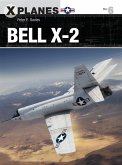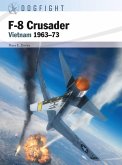In 1935 the USAAC wanted to build a potential intercontinental bomber, a 'Guardian of the Hemisphere,' and granted Donald Douglas a contract to build the world's largest bomber. The groundwork for the intercontinental bomber had been laid in the previous two decades by the courageous military and civilian pilots who risked their lives to set new distance and endurance records. After World War I the future Axis and Allied nations built larger aircraft and finally during World War II Germany and Japan became intent on developing intercontinental bomber to retaliate against America. While the XB-19 never flew as an intercontinental bomber or even as a combat bomber; its contributions as a 'Flying Laboratory' significantly influenced the development of the Consolidated B-36 Peacemaker, the world's first true intercontinental bomber.
Since the XB-19 project was top secret and there was only one example built there is little information remaining for researchers. Over the years Bill Wolf has collected the largest quantity of XB-19 material and a number of photographs, including a copy of the original Army Air Force acceptance of the aircraft, first-hand narratives of its first flight, and other USAAC and Douglas Company documents. This book provides a superbly illustrated history of the XB-19 intercontinental bomber and the text is supported by previously unpublished photographs.
Since the XB-19 project was top secret and there was only one example built there is little information remaining for researchers. Over the years Bill Wolf has collected the largest quantity of XB-19 material and a number of photographs, including a copy of the original Army Air Force acceptance of the aircraft, first-hand narratives of its first flight, and other USAAC and Douglas Company documents. This book provides a superbly illustrated history of the XB-19 intercontinental bomber and the text is supported by previously unpublished photographs.









